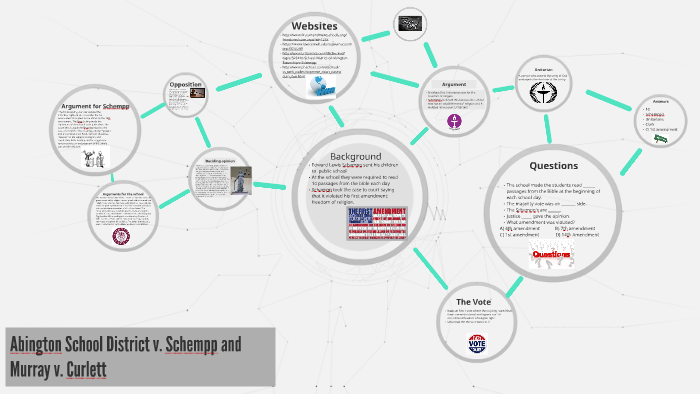

In the first case, the Schempp family, who were Unitarians, filed a suit in which they claimed that Bible readings in the public schools, required by Pennsylvania law, violated their child’s constitutional rights.

Although prayer and Bible reading were generally accepted, they did not occur without controversy, particularly in large cities with religiously diverse immigrant populations. By the turn of the 20th century, states began to codify such practices. These activities continued when education gradually shifted from private to public schooling. Schools often started the day with prayer or Bible reading. This entry describes the background of the case and the ruling.ĭuring the colonial period, most schooling was in private, usually religious, hands. The Supreme Court, in a landmark judgment, held that public schools may not engage in officially sanctioned prayer or Bible reading, because to do so would have been unconstitutional. Constitution permitted public schools to begin the day with prayer or Bible reading. Curlett (1963) was whether the Establishment Clause in the First Amendment of the U.S. At issue in the consolidated cases of Abington Township School District v.


 0 kommentar(er)
0 kommentar(er)
